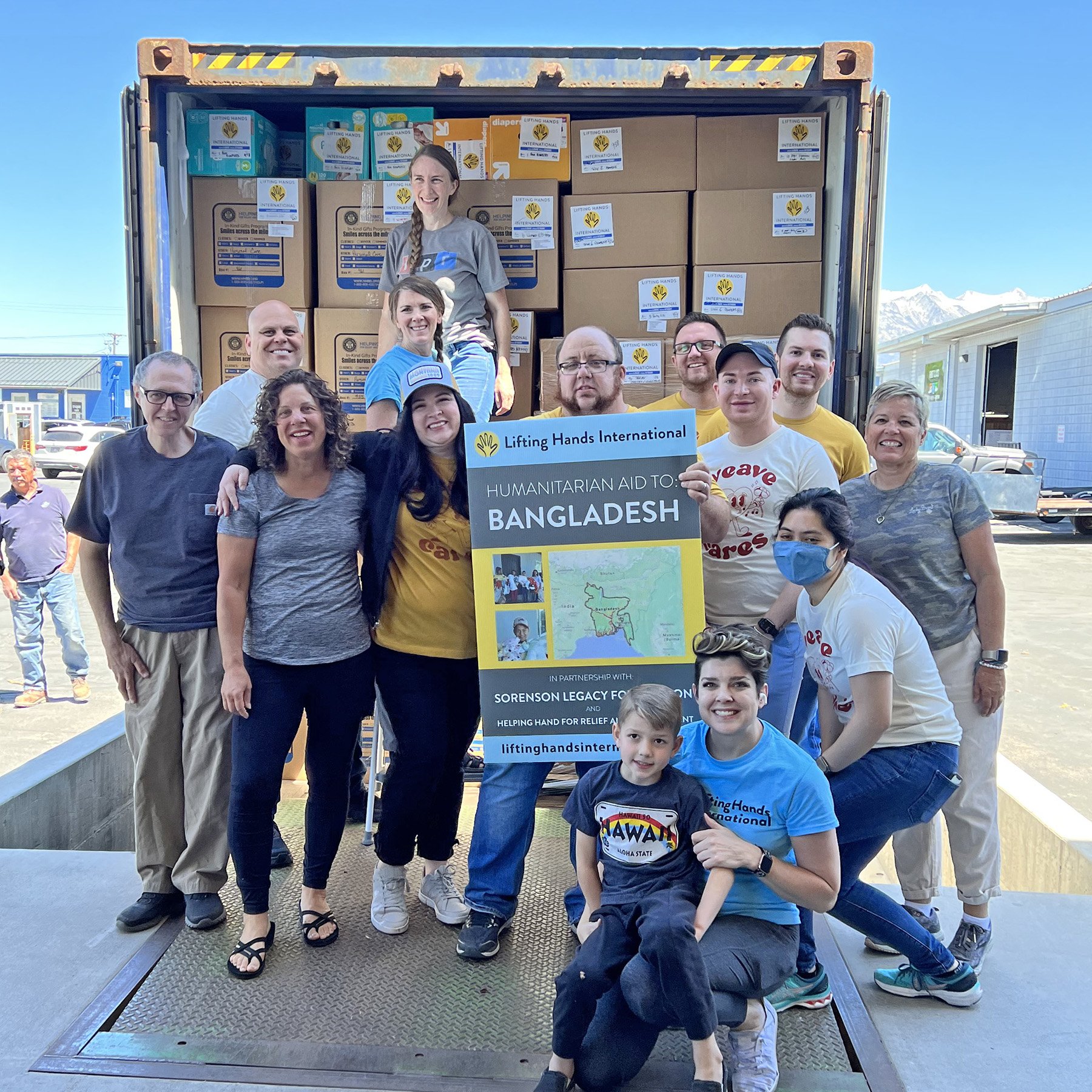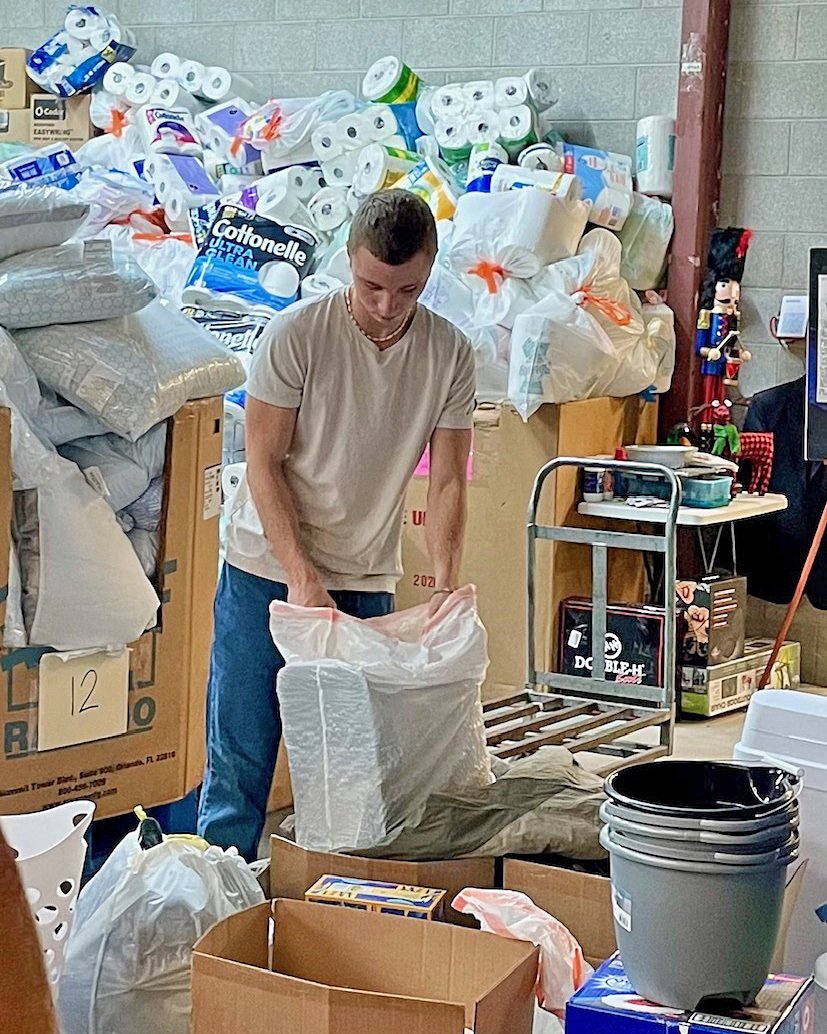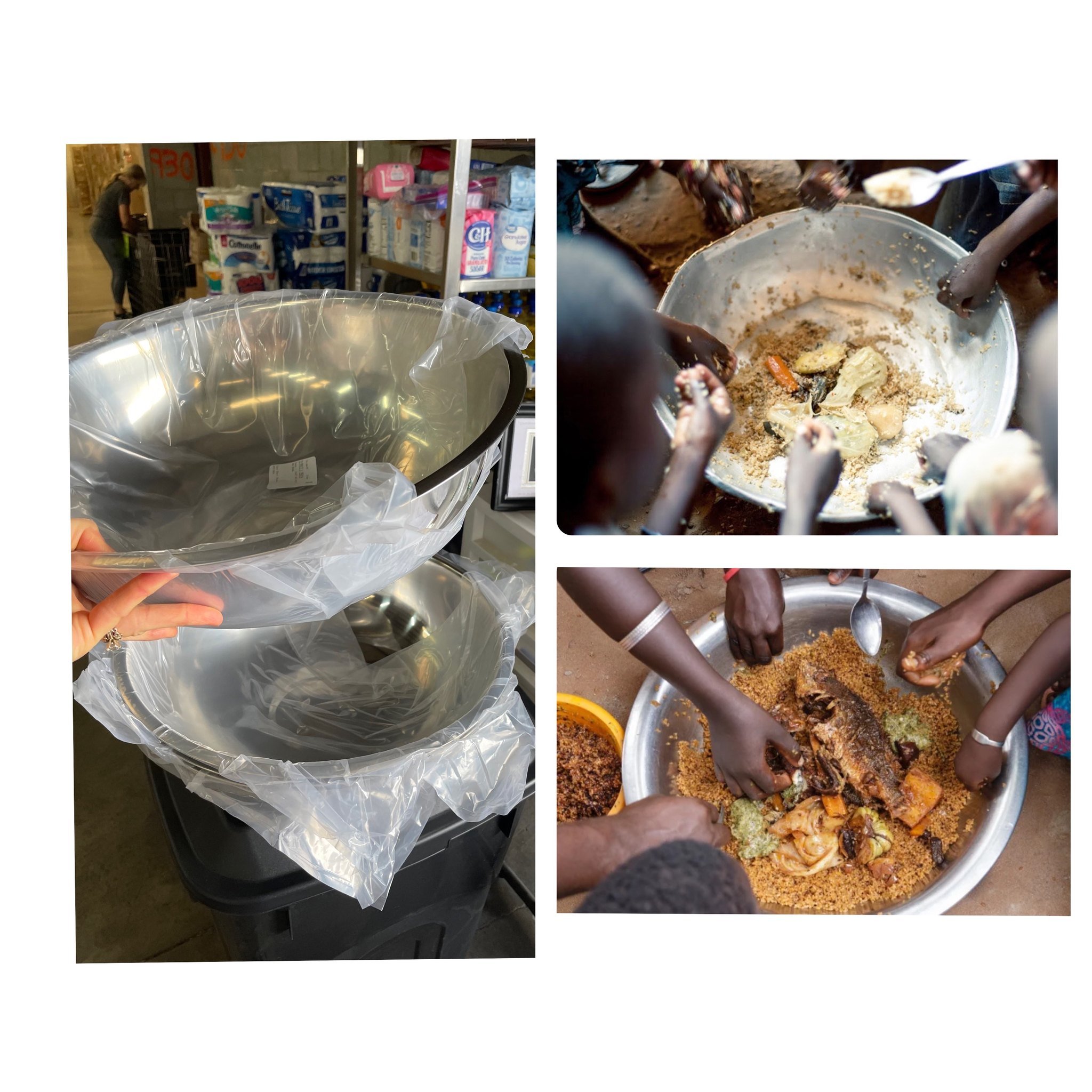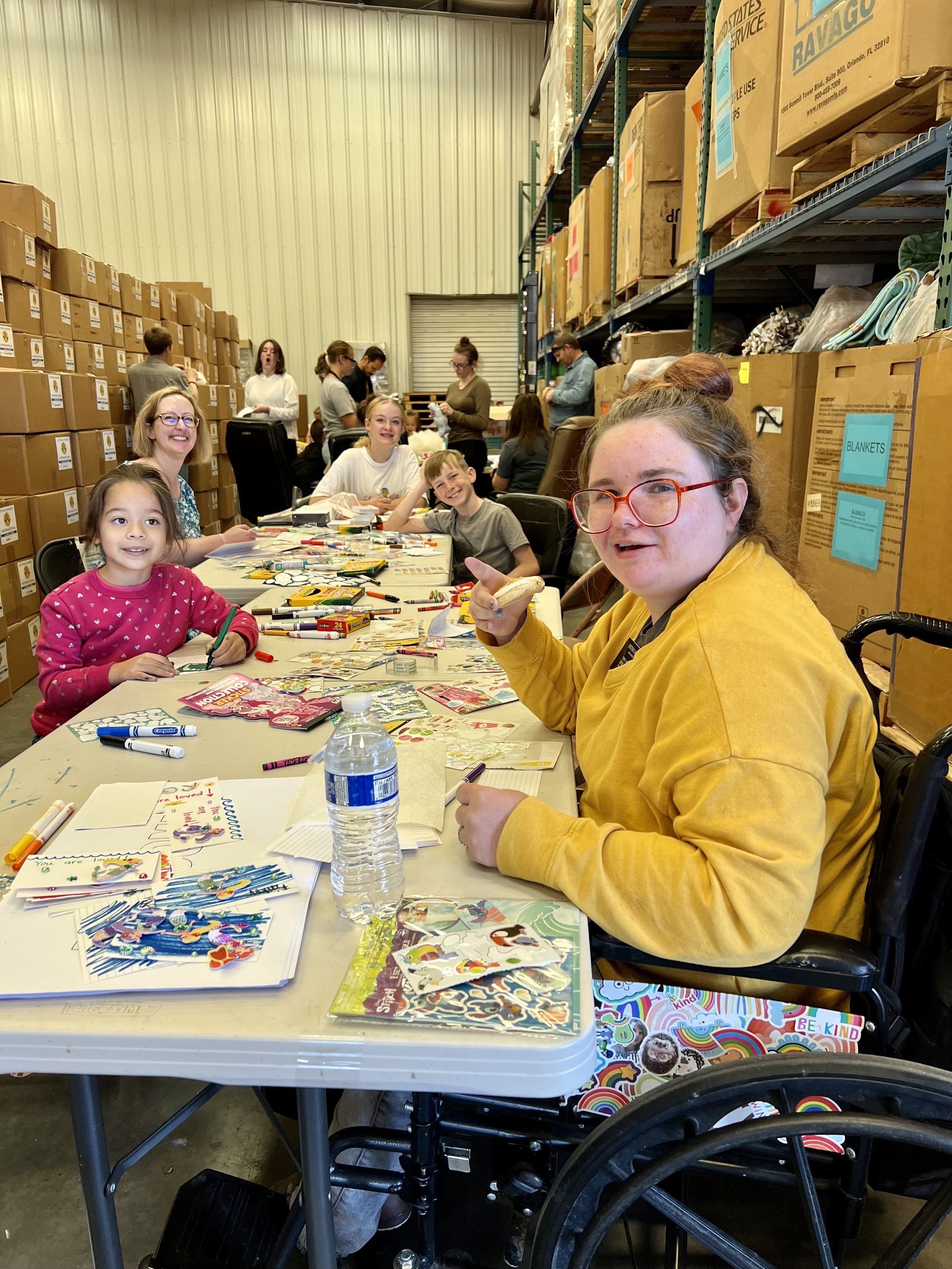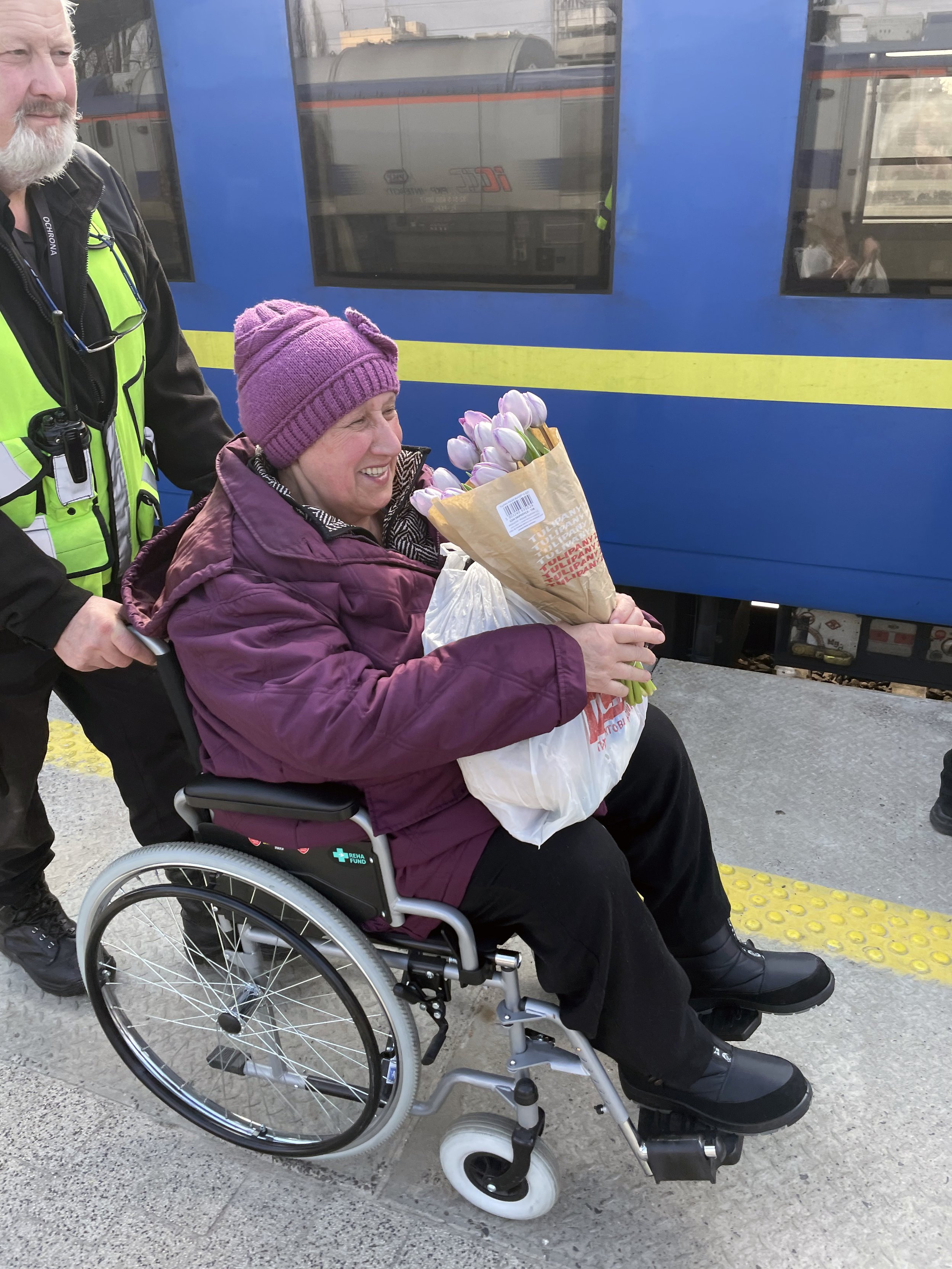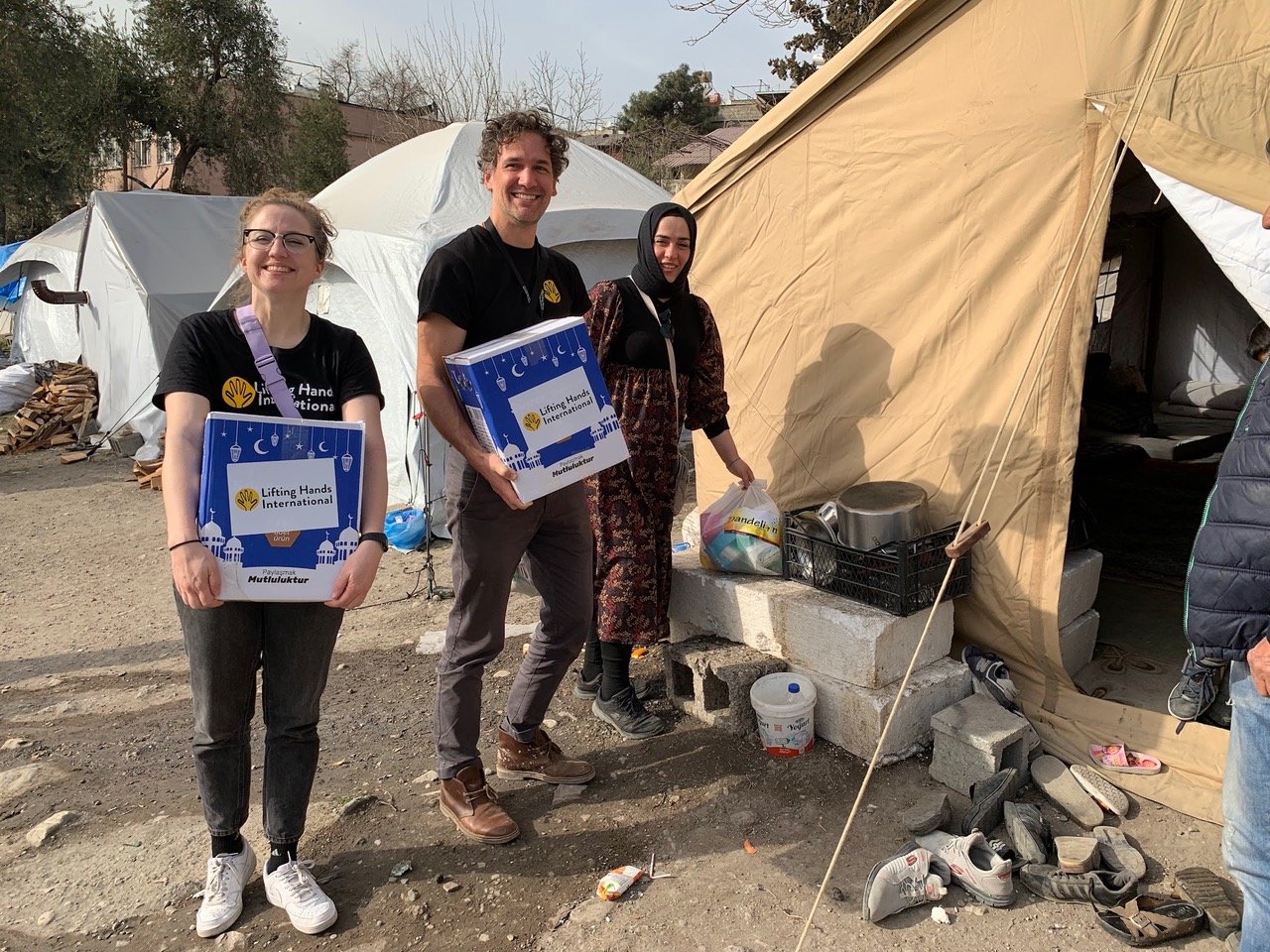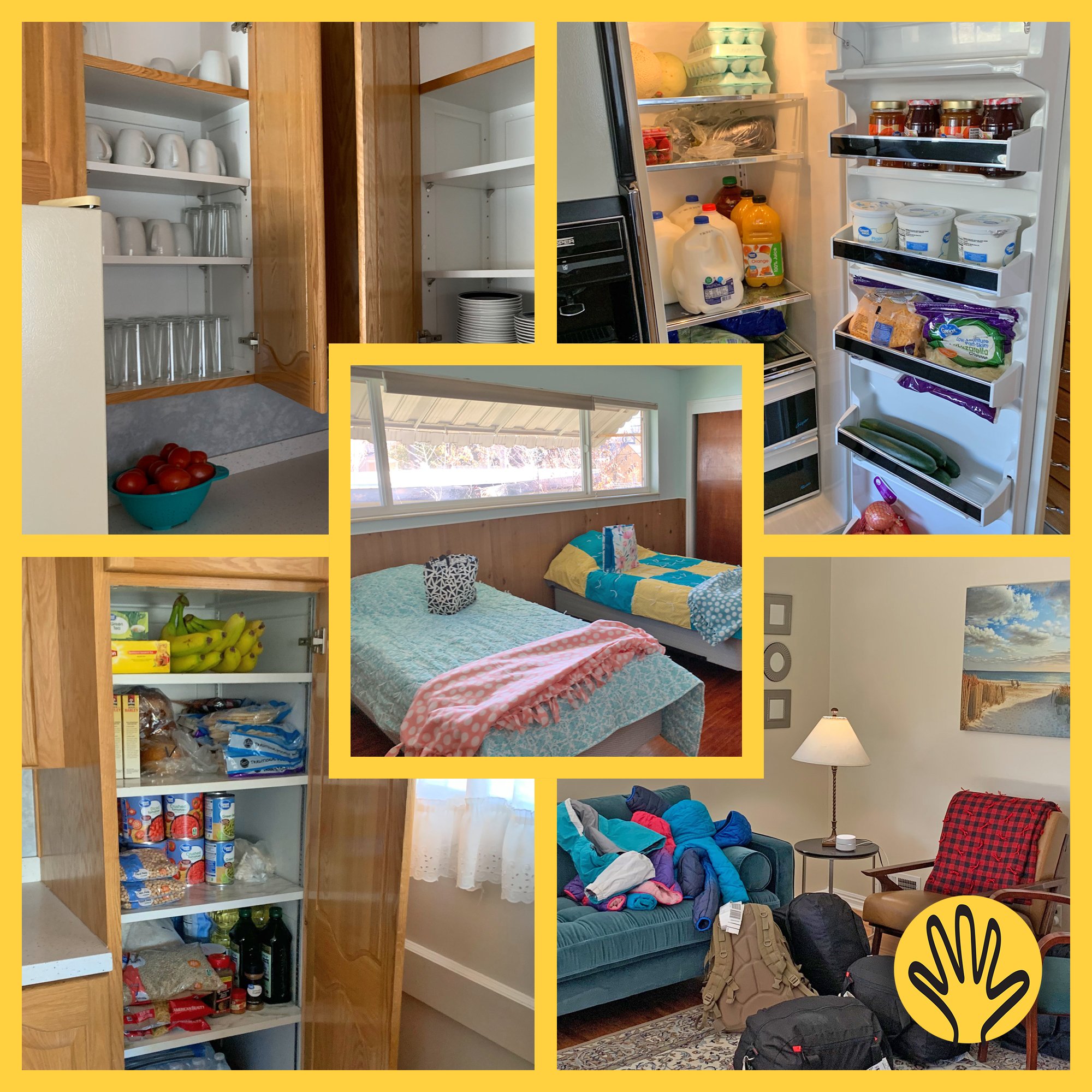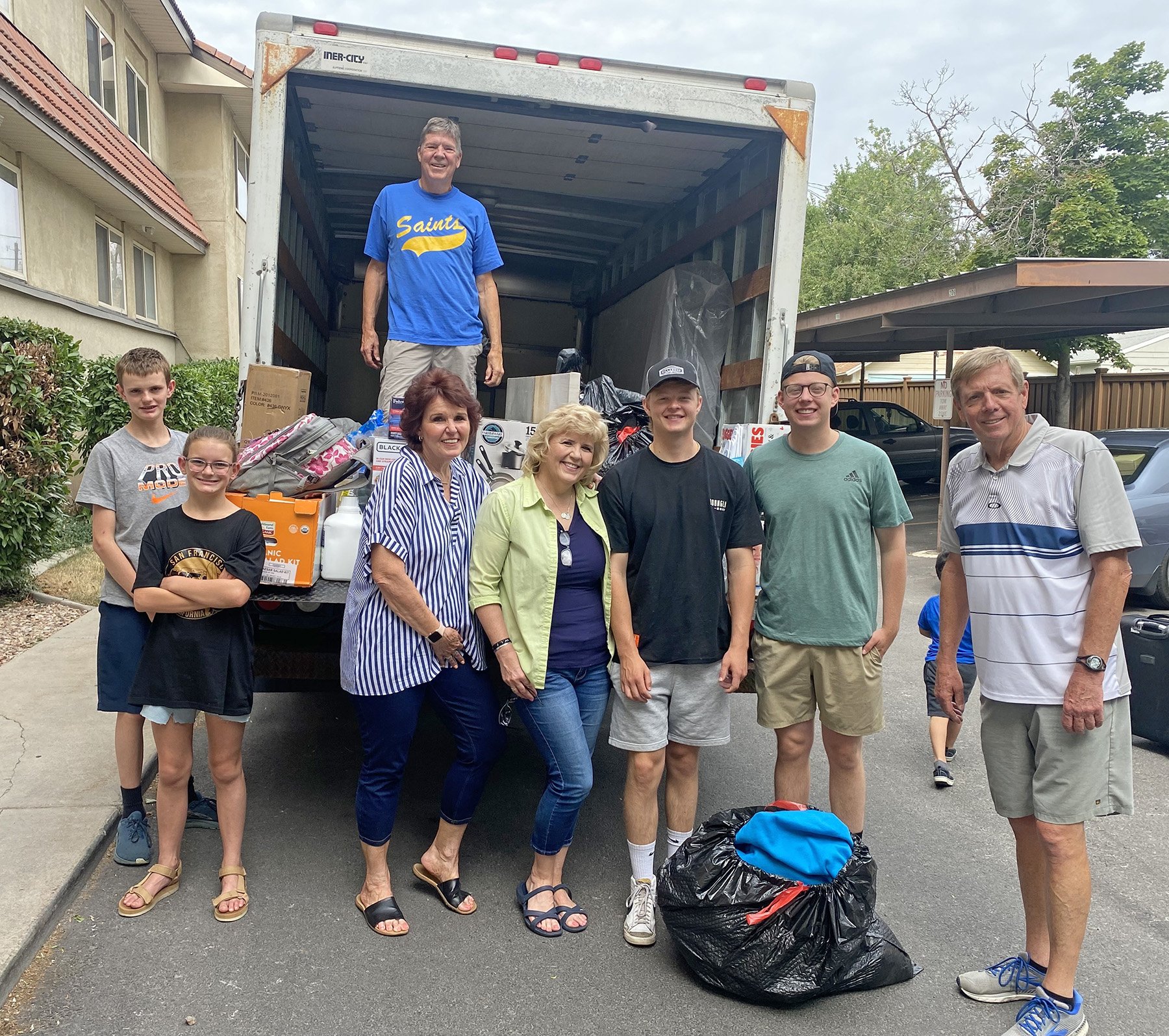Anne, LHI Refugee Resettlement Manager, with Joyce and two of her children.
In 2013, Joyce and her family were living in Juba, South Sudan, when simmering political instability and ethnic tensions boiled over into violent civil war. Rebel groups began battling government forces for control across the country. Innocent civilians were caught in the crossfire, targeted for arbitrary reasons. Business owners, teachers, journalists, and aid workers became marked individuals. Others were singled out based on their ethnicity, political affiliation, or social status. Thousands of people were massacred. Sexual violence against girls and women was rampant and children were forcefully recruited by militias.
Juba was very tribal. If they saw someone who went to school or studied, like my husband, it could cause trouble. There were a lot of fights that broke out and it was very hard for us.
Joyce found herself embroiled in a nightmare when her husband, targeted for his perceived status as an educated businessman, was kidnapped by militias. Fearing for their lives, Joyce and her children boarded UNHCR trucks full of other terrified women and girls. The trucks carried them for hours until they crossed the border into Uganda.
A neighborhood in Kampala.
But her challenges were far from over. Everyday life in the overcrowded and impoverished urban refugee settlements in Kampala was extremely difficult. The hospitals didn’t have mattresses, sheets, or lights. Food and clean water were scarce, and they often faced dangerous outbreaks of cholera.
We had to be self-reliant, but most of the refugees couldn’t afford to. The other girls and I moved from place to place. We washed clothes for people, did some laundry for them, just to earn a living.
As a mother, Joyce faced even greater dangers. One of the girls she came with on the trucks was kidnapped and smuggled back to South Sudan where she was beaten to death. The girls’ family, blaming Joyce for their daughter’s death, demanded she give up her first-born daughter as compensation. Others in the community also began pressuring her to marry off her daughter.
In South Sudan, when you have female children, they are seen as wealth. They can be married off at any time. They have no rights to go to school. I didn’t go to school, and was also married at an early age. I didn’t want my daughter to be taken.
Despite the violence at her doorstep, Joyce was a fearless community leader, speaking out against gender-based violence, child marriage, and domestic abuse. She urged women to stand together and fight for their daughters’ right to an education. Her work even caught the attention of the UNHCR in Kampala, who recognized her ability to bring women together.
I just wanted a free space for every child, for every girl, to go to school. Not to be forced into marriage. The child has a right to decide, to be a better person.
Jaron, LHI’s COO, with a refugee family in Kampala.
Joyce’s brave activism stood up to the power of community elders who exploited young girls for their own personal wealth and gain, but it didn’t come without a personal cost. She was accused of spoiling her children, and going against tradition.
I became an enemy to the community. People started asking, “Where does Joyce live? What is Joyce doing?” I was targeted, and in 2023, I was attacked in Kampala. I was beaten until I bled, and was unconscious for 3 days in the hospital.
The UNHCR began to recognize that the situation had become far too dangerous for Joyce to stay in the camp. For Joyce and her children to have any chance at survival, they would have to move elsewhere.
In January 2024, a decade after fleeing South Sudan, Joyce and her children resettled in America through the US Refugee Admissions Program (USRAP). Though finally safe, she was completely alone. With no connections in the area, she relied on a caseworker assigned to her family to adjust to daily life in the US. But their time was limited, and Joyce knew she would need more support to rebuild her life.
I landed in Syracuse, New York, and I felt lost in an unknown land. I didn’t know anyone. I didn’t know how to get to the market or the hospital. The caseworker couldn’t just drive me all around. My children had no one to talk to.
But Joyce had a close friend living in Utah named Peninah who she grew up with and considered a sister. She knew that being near Peninah would make her new life much easier, so she contacted the US Citizenship and Immigration Services (USCIS) for help.
I had been traumatized and beaten. I didn’t know whether my husband was alive or not. I didn’t know how to start life. But when I came to Utah, I felt like I was at home. I could smile because I had my sister. She could drive me around, and she could help if I had any issues. My children could talk to her children at school, and they could use the bus together.
Joyce’s new apartment was completely unfurnished, and her family had been sleeping on the floor.
Shortly after arriving in Utah, Joyce met Anne, LHI Refugee Resettlement Manager. At the time, Joyce’s new apartment was empty—they had no mattresses to sleep on or winter clothes to wear. Anne and LHI’s volunteer do-gooders in Utah made sure to give Joyce and her children a proper, warm welcome. They delivered furniture and clothing from the LHI Humanitarian Aid Warehouse directly to her door, set everything up, and ensured that Joyce’s family had all the supplies they needed.
When we first came to Utah, we were sleeping in the cold. I didn’t have any clothes. But Anne came into my life like a guardian angel. She brought us everything. She didn’t only give me clothes and mattresses, she also encouraged me. She made me smile. I felt so motivated.
With Peninah and organizations like LHI at their side, Joyce and her family are thriving in Utah. Joyce is taking classes to earn her GED and her children are enrolled in school. They’re finally able to access the education she spent so many years fighting for.
I’m just happy that my children are in school, where their teachers smile at them. And education has no age limit. I will go to school until I finish because I still have a fighter’s heart.
I still want to support the young girls. I’m still fighting for them not to be married off, for them to have the right to go to school. That’s why I’m studying hard in the US. I’m taking any opportunity to support the girls of the future and the girls back home. This is my goal now.
Joyce’s brave advocacy for the rights of girls and women came at a huge cost, and it was critical that her family be resettled outside of Uganda. However, for many other women around the world, safety is now further out of reach. With the suspension of the USRAP, thousands of vulnerable women who have endured brutal displacement and violence are now even more isolated, trapped in dangerous conditions. US budget cuts have also decimated programs that help newly arrived families like Joyce’s.
But we’re making up for what has been lost. In Utah, we’ve restored maternal healthcare for pregnant moms and wellness checks for families. Abroad, we’re helping refugee women build paths forward and achieve self-sufficiency through mental healthcare, professional development, and entrepreneurship.
Now more than ever, we are committed to helping refugees, at home and abroad.











